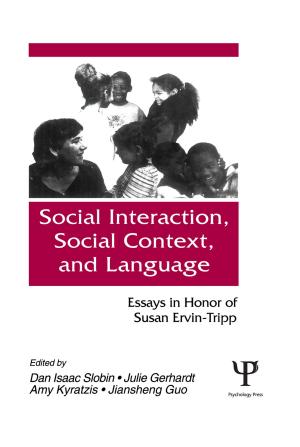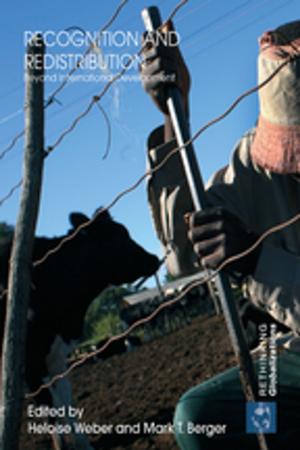| Author: | ISBN: | 9781317850489 | |
| Publisher: | Taylor and Francis | Publication: | October 20, 2014 |
| Imprint: | Routledge | Language: | English |
| Author: | |
| ISBN: | 9781317850489 |
| Publisher: | Taylor and Francis |
| Publication: | October 20, 2014 |
| Imprint: | Routledge |
| Language: | English |
The financial crisis and the ‘great recession’ have generated the need for new thinking in economics and for new economic policies to secure sustainable and equitable economic development. The new thinking in economics is an interdisciplinary approach to economic problems that acknowledges and respects insights and analyses from other disciplines, and recognizes complexity and evolutionary theory as relevant for understanding economic systems and economic behaviour. New Economics is concerned with institutional behaviour, expectations and uncertainty as opposed to traditional economics with its emphasis on equilibrium, mathematical formalism and deterministic solutions. With the financial crisis brought on by the unrestrained pursuit of personal and corporate profit, sanctioned by traditional economics, this is an opportune moment to establish a new way of approaching economic understanding based on new economic theory. It is also a good time to instigate new ideas on the approach to economic policy across a wide range of areas, such as macroeconomic and global governance, employment and unemployment, social security and pensions.
This book is devoted to developing economic policies from the new thinking. It was originally published as a special issue of the International Review of Applied Economics.
The financial crisis and the ‘great recession’ have generated the need for new thinking in economics and for new economic policies to secure sustainable and equitable economic development. The new thinking in economics is an interdisciplinary approach to economic problems that acknowledges and respects insights and analyses from other disciplines, and recognizes complexity and evolutionary theory as relevant for understanding economic systems and economic behaviour. New Economics is concerned with institutional behaviour, expectations and uncertainty as opposed to traditional economics with its emphasis on equilibrium, mathematical formalism and deterministic solutions. With the financial crisis brought on by the unrestrained pursuit of personal and corporate profit, sanctioned by traditional economics, this is an opportune moment to establish a new way of approaching economic understanding based on new economic theory. It is also a good time to instigate new ideas on the approach to economic policy across a wide range of areas, such as macroeconomic and global governance, employment and unemployment, social security and pensions.
This book is devoted to developing economic policies from the new thinking. It was originally published as a special issue of the International Review of Applied Economics.















